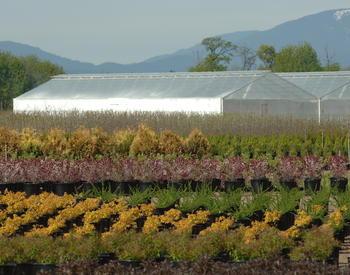Higiene en el campo
Transcript
Cleaning and sanitizing field equipment every day can reduce the risk of contamination of your crops. Remember the difference between cleaning and sanitizing: cleaning is physically removing dirt and debris from a surface and can involve the use of soap or a detergent. Sanitizing is an additional step on clean surfaces to remove microbes that might be harmful. Microbes are very small particles that we cannot see. Cleaning must come first! Use brushes to scrub the exterior of the equipment. You must use soap or a detergent that has been approved for food-contact surfaces. After scrubbing, rinse off the soap with water. It would be best if you finished with a sanitizer to be certain that you have significantly reduced the number of harmful microbes, which we call pathogens. Some surfaces, like wood, will be difficult to sanitize.
Always apply sanitizers that have been approved for food contact surfaces, following the instructions on the label, just as you would for any other chemical. But machines are only one threat to field sanitation. Microbes can grow well in water and often need it to grow. Standing water on your farm is a place where pathogens such as Listeria can be present. If you see standing water on your farm, notify your supervisor to address the problem. Also, do not step in puddles or mud, because soil can contain pathogenic microbes from the farm and you don’t want to move them. You can also spread pathogens from your hands and clothes. Never touch fruits that have bird feces or soil on them.
If you accidentally touch dirty fruits, wash your hands immediately for 20 seconds. Never pick up fruits that have fallen on the ground. Leave them there because they can become contaminated and cannot be used for human food. Animals also can spread human pathogens. Pets should be kept at home; never bring them to the farm because they can be a source of contamination. Watch for wildlife and any evidence of wildlife such as feces near the fruits. Do not harvest anything that has feces on it or is likely to be contaminated. Tell your supervisor right away if you see an increase in wildlife or animal waste. These videos are only intended to promote good hygiene practices on a farm to reduce the risk of contamination of fresh agricultural products.
Este video muestra cómo limpiar y desinfectar adecuadamente el equipo de campo. Los espectadores también entenderán las amenazas que el agua estancada y los animales representan para la seguridad de los alimentos.

 Extension Service
Extension Service